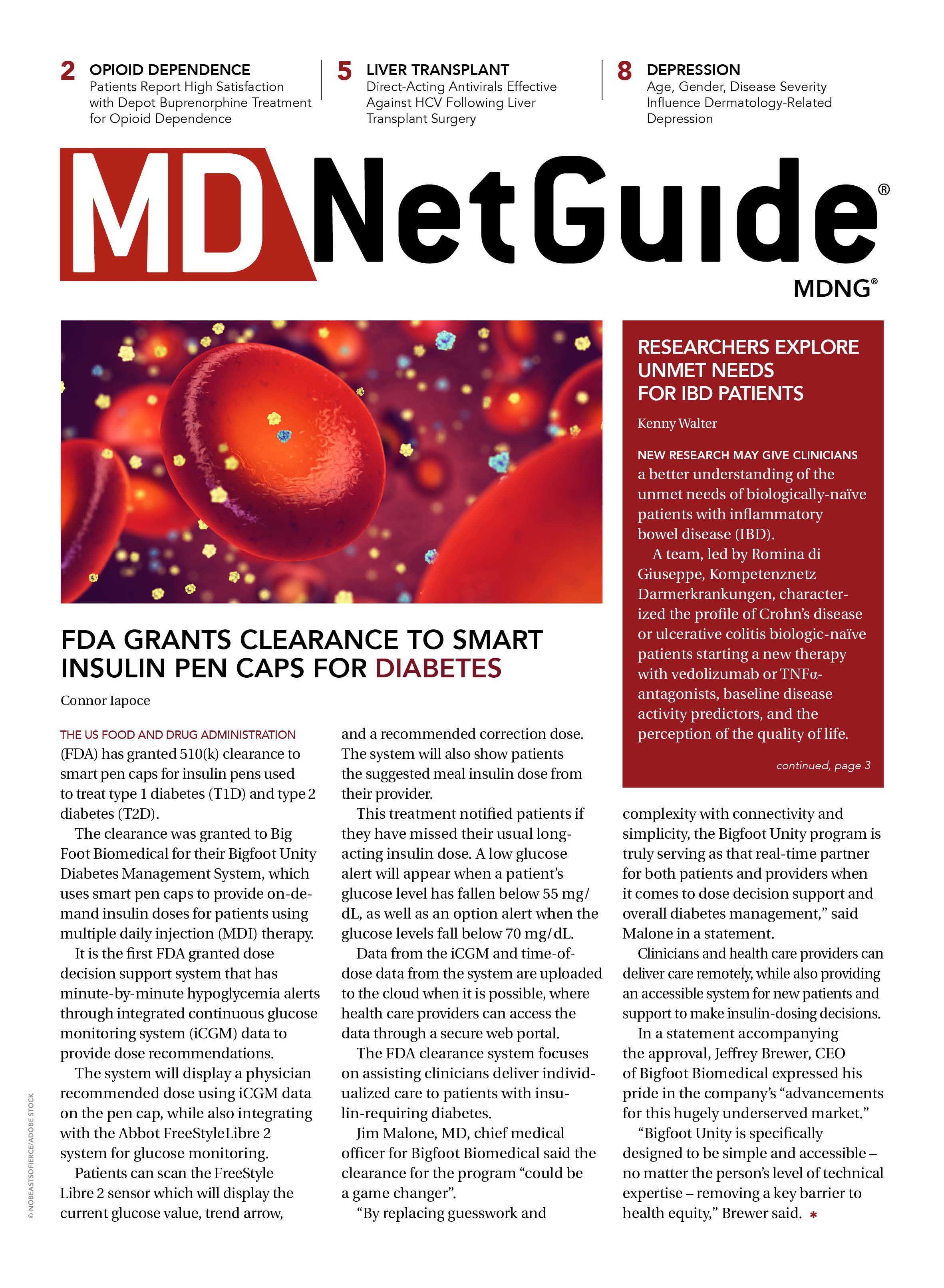Publication
Article
MD Net Guide Newsletter
Baricitinib Shows Long-Term Efficacy for Atopic Dermatitis
Author(s):
Patients who received 2 mg or 4 mg of baricitinib maintained vIGA-AD scores through 68 weeks of treatment.
Jonathan Silverberg, MD

New data demonstrates the long-term efficacy of baricitinib in patients with moderate to severe atopic dermatitis.
The BREEZE-AD3 is an ongoing phase 3, multicenter, long-term extension study that enrolled patients from the BREEZE-AD1 and BREEZE-AD2 studies. Both trials ran for 16 weeks and assessed the impact of the selective Janise kinase (JAK) 1 and 2 inhibitor on the disease’s clinical signs and symptoms.
The extension study’s investigative team, led by Jonathan Silverberg, MD, of George Washington University School of Medicine, is continuing to assess whether such responses were sustained in patients beyond the 16-week observation period. The team is also seeking to determine the effect of baricitinib dose uptitration among patients who failed to respond to treatment.
Patients who responded or partially responded to therapy by week 16 — defined as achieving validated Investigator Global Assessment for Atopic Dermatitis [vIGA-AD] score of 0, 1 or 2 —continued on their same treatment regimen for 52 additional weeks (week 68).
“The primary end point was the proportion of patients achieving a vIGA-AD score of 0, 1 at weeks 16, 36, and 52 of BREEZE-AD3,” Silverberg and team wrote.
"Secondary end points included the proportion of patients achieving 75% or more improvement in the Eczema Area and Severity Index [EASI75] score and 4-point or more improvement in the itch numeric rating scale (NRS), using originating study baseline data,” they continued.
As such, 1081 patients (of the 1239 patients from both originator trials) were enrolled in the placebo-controlled long-term extension study. Further, 221 patients were classified as responders and partial responders at the start of BREEZE-AD3.
Among those who received baricitinib 1 mg and were classified as a responder/partial responder at the start of the extension study (n = 45), 33% experienced a loss of response. They were then given rescue therapy with baricitinib 4 mg or 2 mg.
As for those who received baricitinib 4 mg and were responders of some degree (n = 70), 47.1% achieved vIGA-AD 0 or 1 at week 68. This figure compares with 45.7% of patients who achieved the endpoint at week 16 (BREEZE-AD3 baseline).
Furthermore, 58% of the aforementioned patient population experienced an improvement of ≥75% in the EASI score (EASI75) at week 68—versus 70.0% at week 16.
Up to 45.9% of patients achieved an itch NRS improvement ≥4 points at week 32, slightly down from 52.5% at week 16.
Silverberg and colleagues also evaluated responder/partial responders who were treated with bariticinib 2 mg (n = 54). As many as 59.3% achieved vIGA-AD 0 or 1 at week 68 compared with 46.3% at week 16/baseline.
Improvements in EASI75 score were achieved by 81.5% at week 68, up from 74.1% at week 16.
And finally, 39.5% of patients demonstrated an itch NRS improvement ≥4 points at week 32 versus 44.2% at week 16.
Sleep disturbances due to itch—measured in number of nighttime awakening—was the most consistent metric across both the 2 mg and 4 mg treatment groups.
“The findings of this study demonstrate that baricitinib, 4 and 2 mg, have long-term efficacy (up to 68 weeks) in adults with moderate to severe atopic dermatitis,” the investigators wrote. “Overall, these findings provide support that baricitinib may be a longer-term treatment option for patients with moderate to severe atopic dermatitis.”
A study published last month affirmed the JAK inhibitor's long-term safety in this patient population.
The study, “Long-term Efficacy of Baricitinib in Adults With Moderate to Severe Atopic Dermatitis Who Were Treatment Responders or Partial Responders,” was published online in JAMA Dermatology.






